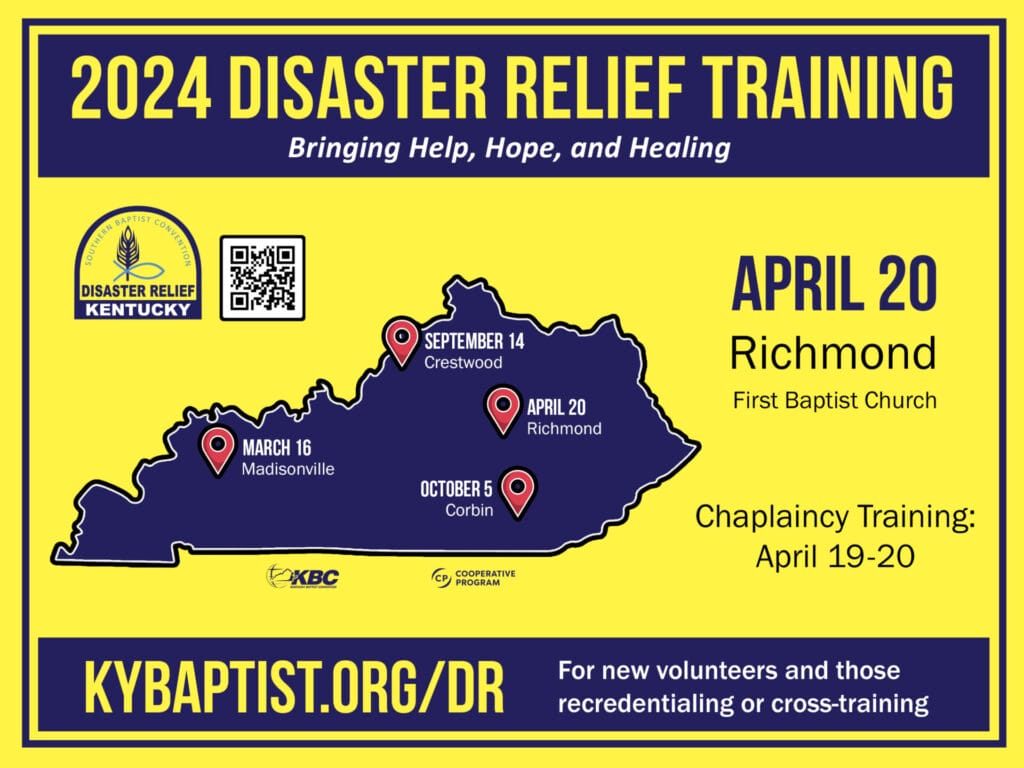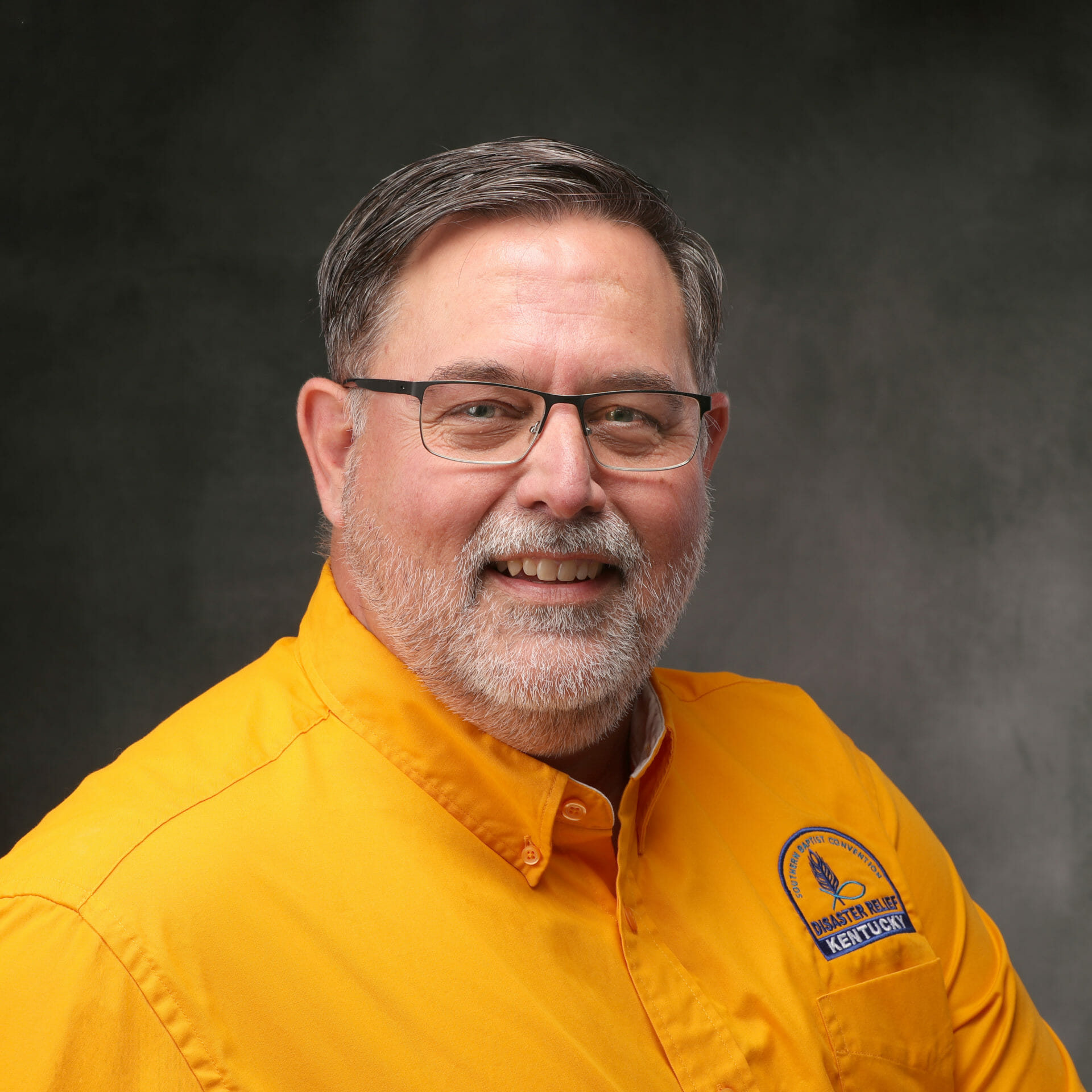Introduction to Disaster Relief
This course gives a general overview of the work and ministry of Southern Baptist Disaster Relief. It is required for all volunteers every 3 years, including those recredentialing. This keeps everyone up to date with any changes and a background check.
Mass Feeding – *Our most popular and often most needed call out following a disaster.
You will learn about feeding operations to ensure the safe storage, handling, preparation, and distribution of food to disaster survivors and volunteers. This training does not override state and local laws and regulations, nor is it designed to replace appropriate procedures currently being used in state disaster relief training.
Chainsaw Safety & Chainsaw Certification Level 1 – *A future course will be offered for Chainsaw Certification Level 2.
Chainsaw Safety provides a brief overview of the safe operation serving on a chainsaw team and brush pulling. Chainsaw Certification Level 1 is for those who desire to use a chainsaw on a KYDR team and covers limbing of trees already on the ground. Chainsaw Safety is a prerequisite to Level 1 training and class size is limited. Safety is a priority.
Roof Tarping
Tarping a roof after a disaster helps prevent further damage to the home. Safety procedures and processes are taught to protect volunteers and property. Being on a roof is not required; there is a roof crew and a ground crew.
Flood Recovery
This course teaches safety and work procedures in home clean-up after a flood including debris removal, tear out, and sanitization.
Shower / Laundry
Proper methods of sanitizing, cleaning, and basic maintenance of the shower / laundry unit. Also, ways to minister to those we are serving. Showers and laundry will be provided to our volunteers and at times to the public.
Damage Assessment – *Previous recovery (chainsaw/flood) experience required.
Damage assessors visit homes affected by disasters and often make first contact with the homeowner(s). They gather information, assess damage, minister to families, complete the property owners request for assistance assessment form, and report their findings.
Chaplaincy
Two-day training, beginning on Friday at 1:00 pm. You must hold a current KYDR DR badge to attend and DR experience preferred. Chaplains provide spiritual care to those affected by a disaster which includes, but not limited to, survivors, family members, and our own volunteers. Pastors and AMS’s are welcome to attend without prior experience but must have a current KYDR badge.
Mobile Communications – This course will teach basic skills and how to use the communications tools as we respond in times of disaster. Communications involves radio communication as well as IT, StarLink, and cell boosters.
Temporary Emergency Childcare – *A deeper level background check will be required to receive childcare credentials. Caring for children following a disaster involves more than just watching children. It also includes ministering to children providing comfort and helping them process fears and loss.
Evangelism in Crisis *Note: this is not chaplaincy training.
This course will offer tools to learn how to minister to people you meet on responses with your presence, prayer, and conversation. Learn how to engage those around you in Gospel conversations.
Water Purification
Learn about the need for filtered water, ways to purify water, different types of water filters for use when responding to disasters whether domestic or international.
Basic CPR & AED
Learn the foundational skills for Cardiopulmonary resuscitation (CPR) and the Automated External Defibrillator (AED).
First Aid
The First Aid training will provide skills for providing basic care for open wounds, broken limbs, head injuries, etc.

 RON CROW
RON CROW